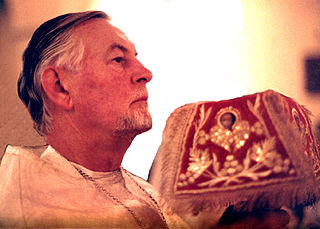A Quote by Leo Tolstoy
Can it be that I have overlooked something, that there is something which I have failed to understand? Is it not possible that this state of despair is common to everyone?
Quote Topics
Related Quotes
Several times I asked myself, "Can it be that I have overlooked something, that there is something which I have failed to understand? Is it not possible that this state of despair is common to everyone?" And I searched for an answer to my questions in every area of knowledge acquired by man. For a long time I carried on my painstaking search; I did not search casually, out of mere curiosity, but painfully, persistently, day and night, like a dying man seeking salvation. I found nothing.
An individual in despair despairs over something. . . . In despairing over something, he really despair[s] over himself, and now he wants to get rid of himself. Consequently, to despair over something is still not despair proper. . . . To despair over oneself, in despair to will to be rid of oneself-this is the formula for all despair.
Is it possible that there is something we don't fully understand about God and about Life, the understanding of which would change everything? Is it possible that there is something we don't understand about ourselves, and about who we are, the understanding of which would alter our lives forever for the better? Yes. The answer is yes.
I do not see how a man can work on the frontiers of physics and write poetry at the same time. They are in opposition. In science you want to say something that nobody knew before, in words which everyone can understand. In poetry you are bound to say ... something that everyone knows already in words that nobody can understand.
Commenting to him about the poetry J. Robert Oppenheimer wrote.
Centuries of secularism have failed to transform eating into something strictly utilitarian. Food is still treated with reverence...To eat is still something more than to maintain bodily functions. People may not understand what that 'something more' is, but they nonetheless desire to celebrate it. They are still hungry and thirsty for sacramental life.
I'm not prescribing non-doing as a universal response to our problems. Sometimes, something obviously needs to be done. And we retreat into a spiritual or meditative state that we fancy up by calling it mindfulness, but really it's an unhealthy detachment and a shrinking back from life. But culturally, it's much more common to be trapped in habits of reaction, whether on a systemic level or on a personal level. That's where the non-doing comes in, which is something that we don't really have room for. I think that it's something we need to embrace as part of the creative process.
When we call something unfair or indecent or unconscionable or evil, when we speak of mercy and pity and compassion, those words have meaning, regardless of our particular faith or moral philosophy. They appeal to common standards we all are expected to understand and accept, standards without which we could not live any common life at all.





































